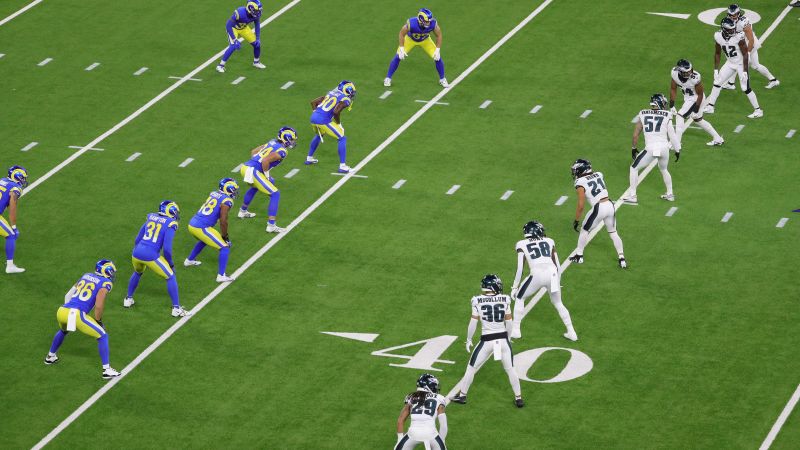The Pat McAfee Phenomenon: ESPN’s New Wild West
In a broadcast that sent shockwaves through the sports and political media landscape, Pat McAfee, ESPN’s high-octane personality, hosted former President Donald Trump on his eponymous show, igniting a firestorm of debate. What began as a Veterans Day special quickly morphed into a profound discussion about media control, journalistic ethics, and the evolving boundaries of live television.
The Interview That Shook ESPN
Tuesday’s episode of ‘The Pat McAfee Show’ saw President Donald Trump call in, initially to discuss his profound admiration for the nation’s veterans. However, the conversation meandered into various topics, including a pointed critique of the NFL’s new kickoff format. Trump, known for his direct and often controversial commentary, expressed a strong disdain for the rule changes, calling them detrimental to the game’s excitement. This commentary, delivered on an ESPN platform, underscored the unique position McAfee now occupies within the sports media giant.
Sage Steele’s Provocative Claim: ‘Full Control’
Adding fuel to the already raging inferno, former ESPN broadcaster Sage Steele weighed in on the controversy. During an appearance on Jason Whitlock’s ‘Fearless’ podcast, Steele articulated a view that many in the industry have quietly pondered: that Pat McAfee operates with ‘no rules’ at ESPN. Her exact words, ‘it’s hysterical that Pat McAfee has “no rules” at ESPN,’ resonated deeply, suggesting a level of editorial autonomy rarely seen within a tightly controlled corporate entity like Disney-owned ESPN.
“It’s hysterical that Pat McAfee has ‘no rules’ at ESPN. This isn’t just about a personality; it’s about a paradigm shift in how major networks manage talent and content. The implications for editorial independence are massive.”
Steele’s perspective, coming from someone intimately familiar with ESPN’s internal workings, lent significant weight to the narrative of McAfee as a maverick, operating outside the conventional guardrails. Is this a strategic move by ESPN to capture a specific, unvarnished audience segment, or merely an unforeseen consequence of McAfee’s burgeoning star power and negotiating leverage?
McAfee Fires Back: ‘You Hate the Troops’
Predictably, the interview drew considerable backlash. Critics swiftly condemned ESPN for providing a platform to a polarizing political figure, especially one who often finds himself at the center of political contention. However, McAfee was quick to defend his decision, lashing out at detractors with a provocative retort that echoed the sentiment of his guest:
- McAfee’s response to critics was immediate and unreserved.
- He suggested that opposition to Trump’s appearance was tantamount to disrespecting veterans.
- The phrase ‘You hate the troops’ quickly became a flashpoint in the ensuing media debate.
This aggressive defense not only reinforced McAfee’s reputation for unapologetic candor but also highlighted the intense politicization of media content in contemporary society. For many, his stance cemented the perception of a host unburdened by traditional corporate public relations strategies, willing to directly confront his audience and critics alike.
The Broader Implications for Sports Journalism
The Pat McAfee-Trump interview is more than just a momentary blip in the news cycle; it represents a critical juncture for sports journalism and media ethics. Historically, sports networks have strived to maintain a degree of political neutrality, focusing primarily on athletic performance and entertainment. However, the lines between sports, politics, and culture have become increasingly blurred, making such neutrality difficult, if not impossible.
The incident prompts several critical questions:
- What are the permissible boundaries for political discourse on a sports entertainment platform?
- To what extent should individual personalities be granted autonomous editorial control within major media conglomerates?
- How does the pursuit of ‘virality’ and audience engagement intersect with journalistic responsibility?
- Does providing a platform to controversial figures, regardless of the initial intent, inherently endorse their views?
- What precedent does this set for future collaborations between high-profile talent and political figures on sports networks?
ESPN, a subsidiary of Disney, finds itself in an unenviable position. On one hand, McAfee’s show delivers immense ratings and cultural relevance, attracting a demographic that traditional sports commentary might miss. On the other hand, the controversy risks alienating segments of its audience and inviting scrutiny over its editorial standards and corporate values. The balancing act between embracing a dynamic, unfiltered talent and upholding institutional journalistic integrity is a tightrope walk fraught with peril.
The Future of Unfiltered Media
The ‘Pat McAfee Show’ with Donald Trump may very well serve as a case study for the future of media consumption. In an era where audiences gravitate towards authentic, unscripted, and often raw content, McAfee represents a new breed of broadcaster. His appeal lies in his ability to transcend traditional media constraints, offering a show that feels less like a corporate product and more like a direct conversation with his audience.
The government shutdown, a minor plot point mentioned in the initial context, provides a fascinating backdrop. While not directly linked to the core controversy, its inclusion subtly reminds us of the broader political climate in which these media events unfold. The convergence of sports, entertainment, and high-stakes politics is no longer an anomaly but increasingly the norm.
Ultimately, the McAfee-Trump broadcast underscores a fundamental shift in the media landscape. It’s a testament to the power of individual personalities to disrupt established norms and dictate the terms of engagement. Whether this heralds a new era of unprecedented freedom for talent or a perilous descent into unchecked sensationalism remains to be seen. What is clear, however, is that Pat McAfee has carved out a unique, powerful, and undeniably controversial space, forcing ESPN—and indeed, the entire industry—to reckon with the implications of truly ‘full control’. This event is a stark reminder that in the volatile world of modern media, the only constant is change, and the pursuit of engagement often trumps traditional decorum.


